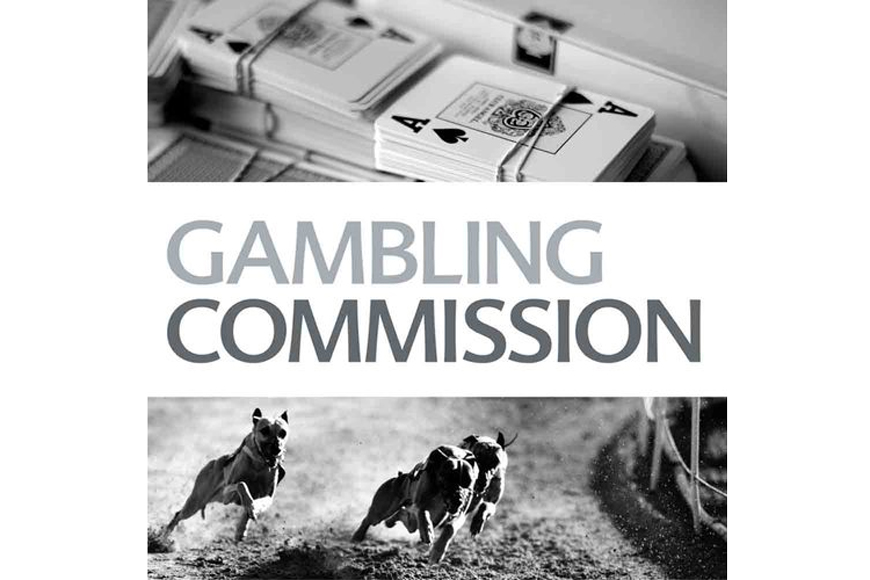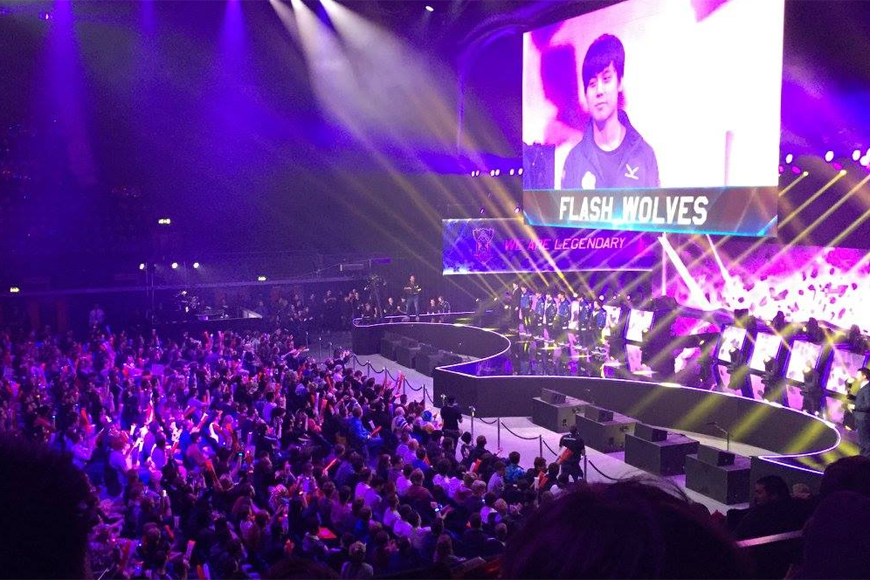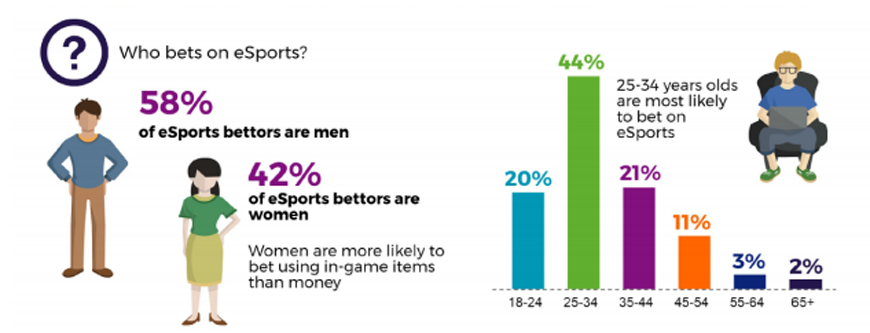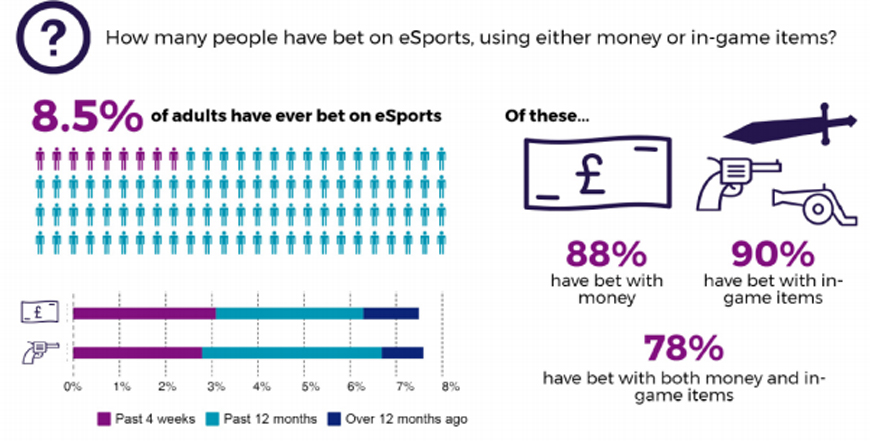Article contains affiliate links
The Gambling Commission, the regulatory body in the UK, today warned parents of the dangers of unsolicited websites promoting esports/skin betting to kids.
Chief exec Sarah Harrison described the sites as ‘parasites’ and a form of gambling.
The Gambling Commission also published a report titled virtual currencies, esports and social gaming, and buried within that, there are some interesting points the Commission makes around whether esports is a form of gambling or not.
“Whether playing a video game for a prize requires a gambling licence will be determined by reference to a number of factors including how the outcome is determined and how the facilities for participation are arranged,” the paper states.
“Given esports involves the playing of a game for a prize, it is possible in some scenarios that this could be caught by the definitions of gambling.”
“Firstly, given esports involves the playing of a game for a prize, it is possible in some scenarios that this could be caught by the definitions of gambling. In such circumstances it is important to consider what is a proportionate approach to the gambling related risks arising.
“Secondly, where individuals or companies provide a commercial service enabling video game players to hazard a stake on themselves as they compete against one another, does this constitute facilities for betting?”
Is esports a sport?
The Commission goes on to explore whether esports is considered a sport, and if that will determine whether it’s technically gambling or not.
“Gaming is defined in section 6 of the Act as playing a game of chance for a prize. Some players or interested parties in esports have suggested the activity may be considered a sport and therefore exempt from the definition of gaming,” it states.
“We are starting from the perspective that esports are not currently a recognised sport benefiting from that exemption.”
Of course, unlike actual gambling and Red Red Flush online casino sports themed slots, esports tournaments let players show their gaming prowess to one another on the big stage.
The Gambling Commission look at whether esports is a game of skill, or chance.
“Whether participation in esports can be considered gambling is largely determined by an assessment of whether the game is a game of skill, where the element of chance is so insignificant as not to matter.”
The Commission added: “Whether participation in esports can be caught as gaming in the gambling sense, is therefore largely determined by an assessment of whether the underlying game is a game of skill, where the element of chance is so insignificant as not to matter.”
We’re guessing they’re not familiar with Hearthstone and Yogg-Saron then.
“Representatives of the video game industry have suggested the underlying games used for esports are inherently skill games. They contend that skilled video game players have considerably more control over the outcome of their game and are consistently more likely to win a given game against someone not as skilled.
“Where this description is accurate, and games are not presented as involving an element of chance, the playing of esports for a prize would not be caught as gaming and in the absence of any other gambling-related issues would not fall within our remit. Our current assessment is that the majority of professional esport events would fall into this category.”
This means the Commission regards esports very differently to gambling and the likes of a Red Flush online casino.
Phew, so esports tournament organisers are safe, then?
Kind of.
The Commission went on: “However, we are mindful of the diverse range of genres and individual game titles which can fall under the umbrella term of esports.
“Given that range, and the concession by representatives of the industry that most games do incorporate some elements determined at random (albeit notional elements) it is important for games developers and/or esport event organisers to assess the element of chance of a particular game prior to permitting its use for a prize of money or money’s worth.
“Organisers of esport events should also consider the impact of tournament or competition formats which may result in the element of chance becoming more than notional. For example, the random assignment of individual competitors to teams, or the designation of characters, weapons or other key tools of variable effectiveness to different participants.
“Applying these considerations to reach an assessment of whether a particular esport activity is caught by the statutory definitions of gaming will unavoidably be a subjective test.”
7 other key points from the Gambling Commission’s paper
It’s quite a lengthy report, so we sifted through it and pulled out some of the most interesting opinions and information from the Gambling Commission.
1. ‘Betting on esports is no different from that of any other event upon which bets can be placed’.
2. The Gambling Commission says that ‘where in-game items or currencies which can be won, traded or sold can be converted into cash or exchanged for items of value, under gambling legislation they are considered money or money’s worth’.
3. The Commission has concerns about ‘undue risk of children being exposed to or seeking to gamble on the outcome of esports events’.
4. Given the wholly unregulated nature of skin gambling websites, the Commission says it’s difficult to get authoritative data on the scale of this black market in Great Britain. “However, there is evidence of a dramatic increase in the supply and use of ‘skin’ gambling websites in the first half of 2016,” it adds.
5. The fact there is no single recognised esports governing body presents a risk of ‘a fragmented and inconsistent approach to integrity matters’.
6. ‘To date we have not uncovered evidence that esports events, available to British consumers to bet on or held in the UK, present a serious integrity risk’.
7. 8.5% of people have gambled on esports and 90% of those had done so with in-game items (skins).
Article contains affiliate links

Dom is an award-winning writer and finalist of the Esports Journalist of the Year 2023 award. He has almost two decades of experience in journalism, and left Esports News UK in June 2025.
As a long-time gamer having first picked up the NES controller in the late ’80s, he has written for a range of publications including GamesTM, Nintendo Official Magazine, industry publication MCV and others. He also previously worked as head of content for the British Esports Federation.





